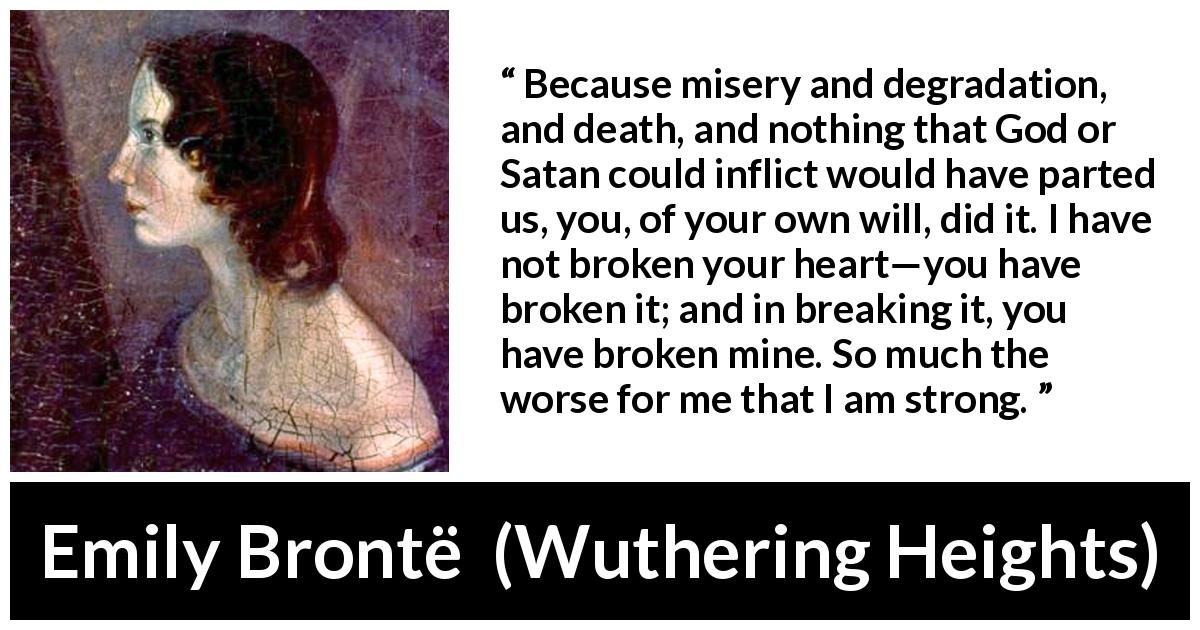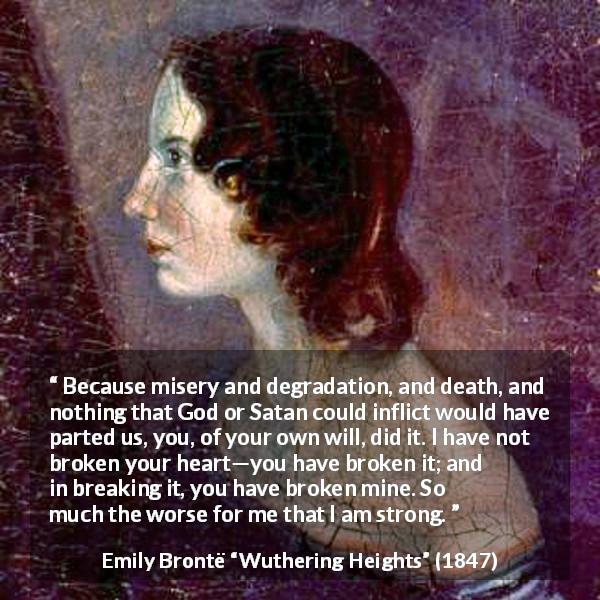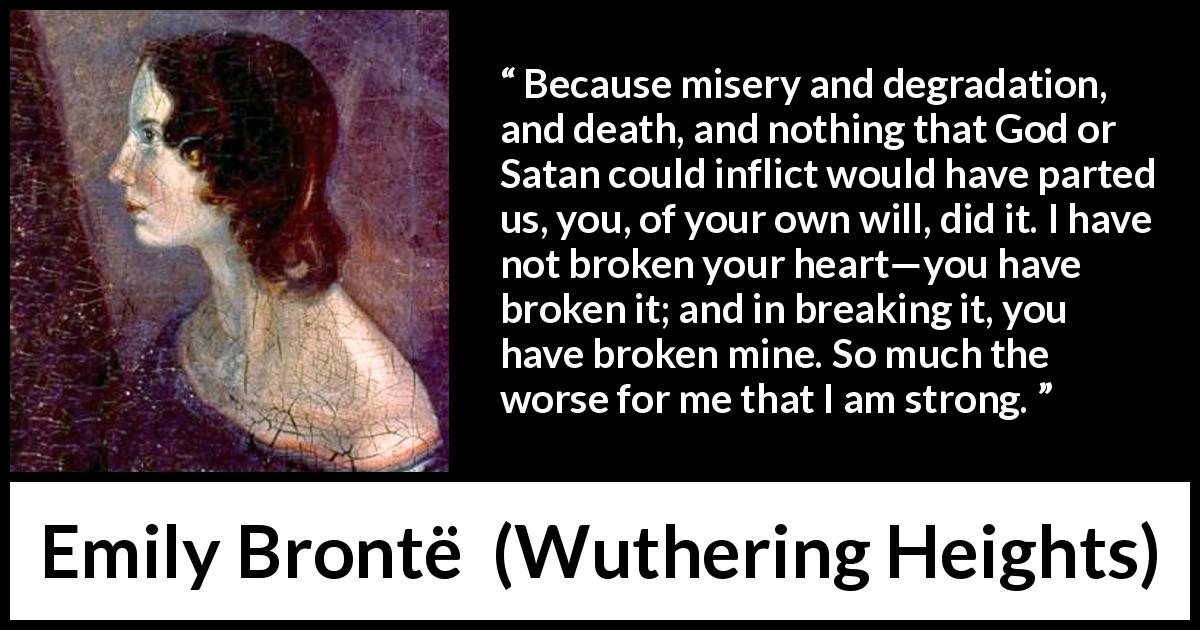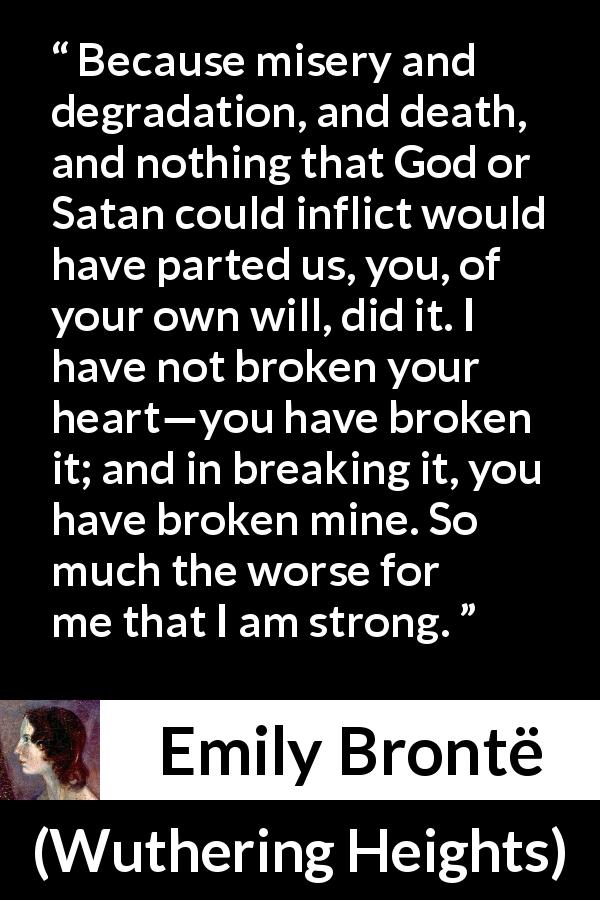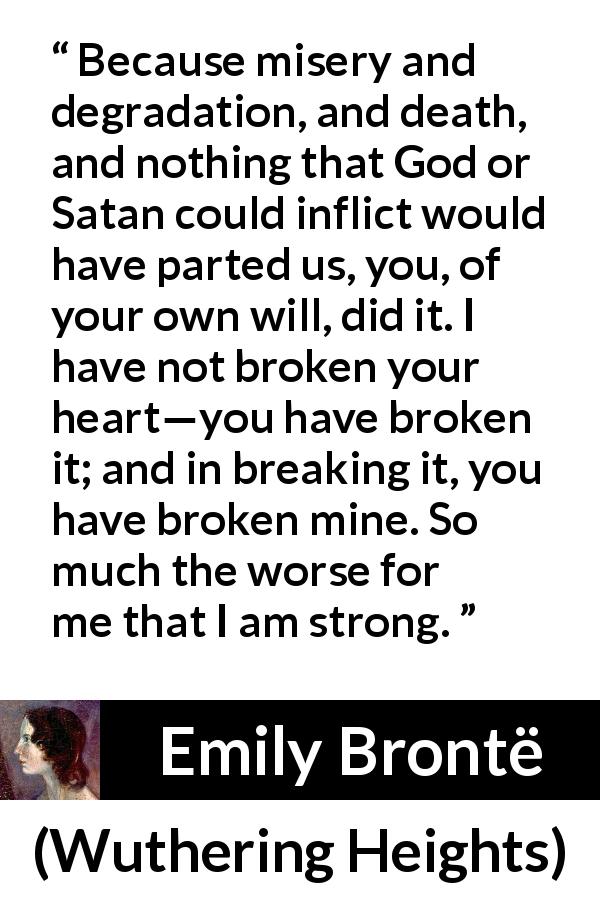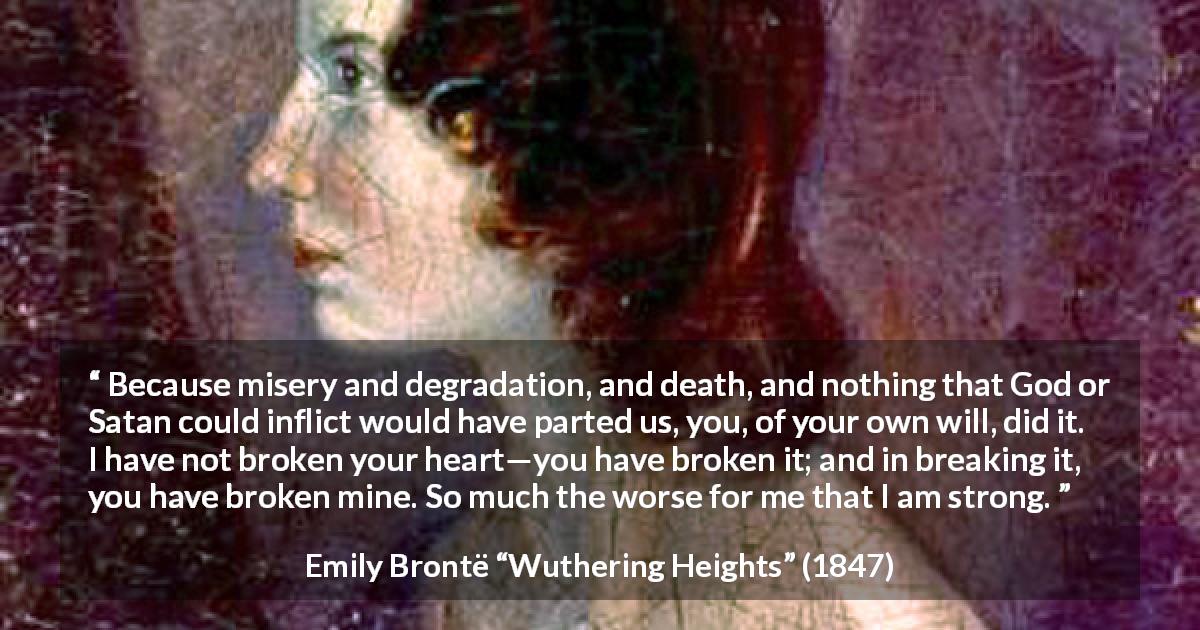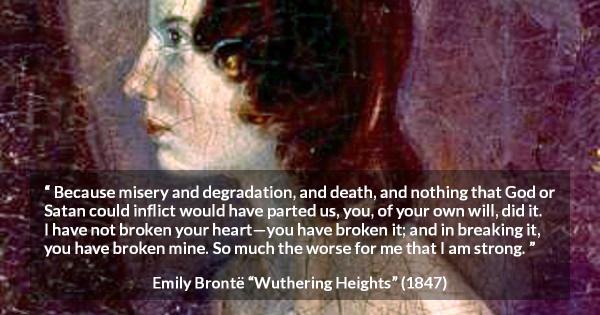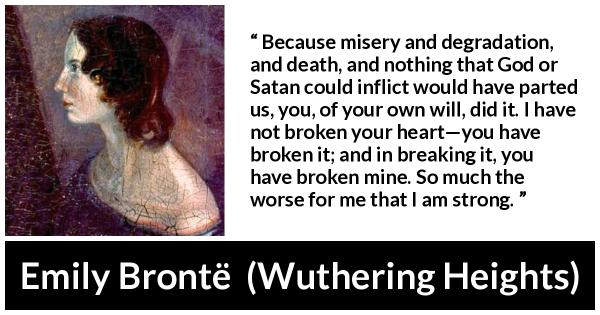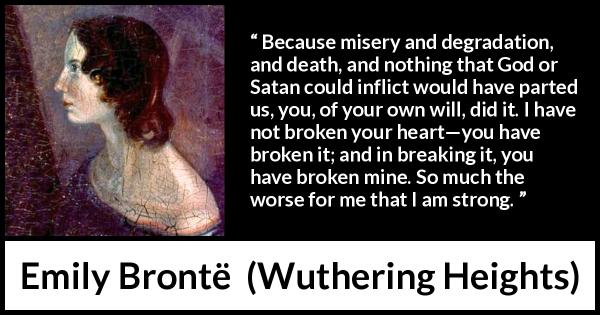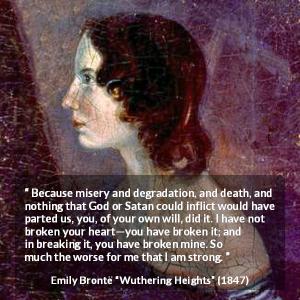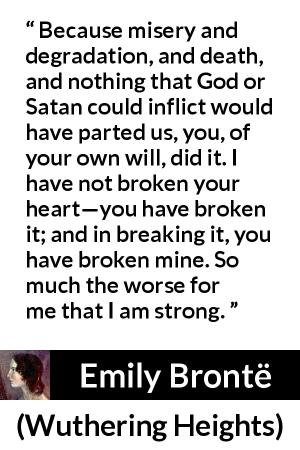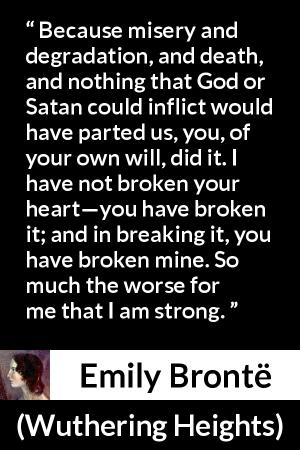“ Because misery and degradation, and death, and nothing that God or Satan could inflict would have parted us, you, of your own will, did it. I have not broken your heart—you have broken it; and in breaking it, you have broken mine. So much the worse for me that I am strong. ”
Emily Brontë, Wuthering Heights (1847). copy citation
| Author | Emily Brontë |
|---|---|
| Source | Wuthering Heights |
| Topic | heartbreak separation |
| Date | 1847 |
| Language | English |
| Reference | |
| Note | |
| Weblink | http://www.gutenberg.org/files/768/768-h/768-h.htm |
Context
“Yes, you may kiss me, and cry; and wring out my kisses and tears: they'll blight you—they'll damn you. You loved me—then what right had you to leave me? What right—answer me—for the poor fancy you felt for Linton? Because misery and degradation, and death, and nothing that God or Satan could inflict would have parted us, you, of your own will, did it. I have not broken your heart—you have broken it; and in breaking it, you have broken mine. So much the worse for me that I am strong. Do I want to live? What kind of living will it be when you—oh, God! would you like to live with your soul in the grave?'
'Let me alone. Let me alone,' sobbed Catherine. 'If I've done wrong, I'm dying for it.” source
'Let me alone. Let me alone,' sobbed Catherine. 'If I've done wrong, I'm dying for it.” source
